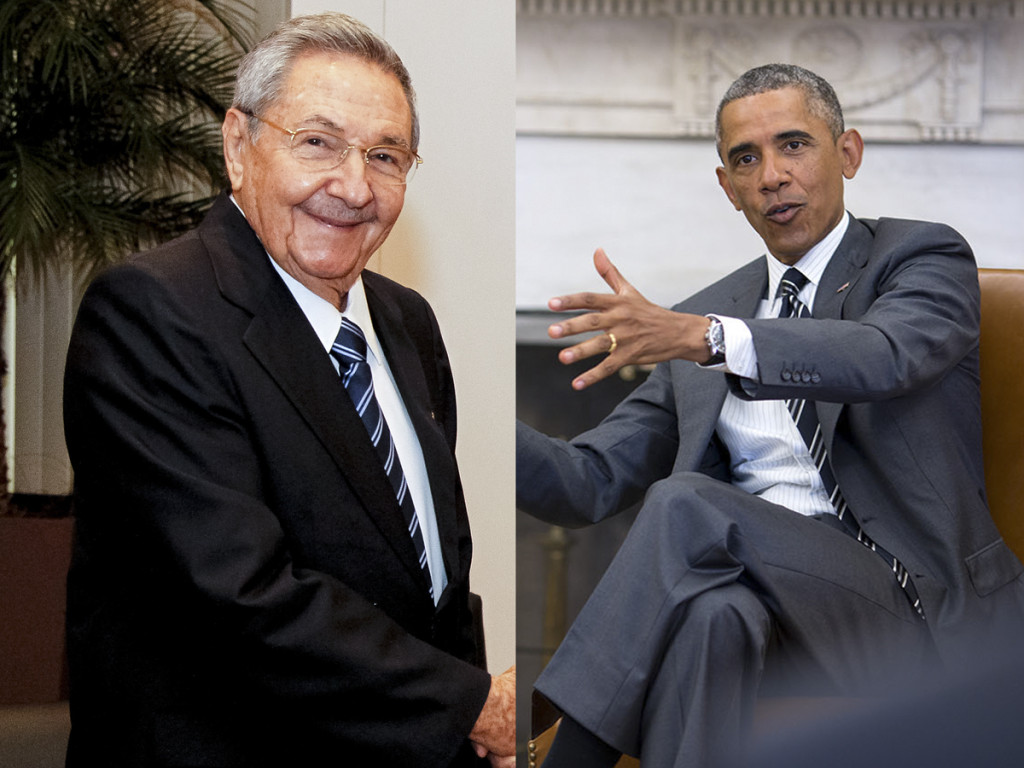Relations between the United States and Latin America seem to have taken a positive new direction after a recent summit in Panama. The United States, normally a somewhat unpopular participant in this summit, was received relatively well by the representatives of the several dozen nations present there.
Perhaps the most important aspect of this summit was that it was the first since 1994 (when the first summit was held) where Cuba was allowed to attend. In years past, the U.S. has blacklisted Cuba from attending, so by allowing them in this year, the U.S. has shown significant good will toward the Cuban government.
Outside of the conference, President Barack Obama has met with Raul Castro, the current leader of Cuba, in an effort to improve relations between the two nations. The U.S. and Cuba have been unfriendly since the ’60s, when Fidel Castro overthrew the existing government and established a communist dictatorship. Even the end of the Cold War, which brought a new level of cooperation between the U.S. and nations such as Russia, failed to end the hostilities between these two nations. Hence, Cuba remains under an embargo as it has been for 50 years.
In a time where the United States is not viewed in a favorable light by much of the international community, President Obama has a chance to win some diplomatic credit by showing Cuba a little international friendship. Namely, the U.S. can end the embargo on trade and travel with Cuba as soon as possible. Such an act would have several benefits in our international relations. Obviously, Cuba would also benefit; being a Caribbean island, it would be an instant winner as far as tourism goes, with all the revenue that would generate. The U.S., though, could gain even more than Cuba, giving all the more reason to go about putting this new policy in place.
Just as Cuba would make money off this potential arrangement, the U.S. would have the opportunity to invest in Cuban business and to expand American business into a new market. Since Cuba has previously been outside America’s economic system, there is practically a clean slate to work with if the embargo is ended.
Furthermore, by showing it is willing to work with a country with which it has been so unfriendly, the United States is demonstrating to the entire international community its good will toward its neighbors. Undoubtedly, some countries would not be swayed by any show of good faith by the U.S., but the odds are that many nations would warm to the idea of what they view as a powerhouse “bully” of a country not only releasing the little “bullied” country from an economic headlock, but also inviting him to come play the game that is politics.
The problem, it might be pointed out, with simply letting Cuba off the hook is that it involves forgetting just why exactly the U.S. embargoed the country in the first place. After all, the Castros set up their authoritarian government by force, working with the Soviets to keep themselves afloat. Since the ‘60s, the Soviet Union has collapsed, China has opened itself to trade and still Cuba sits there, uselessly defending a system that has died out everywhere else two decades ago. This, perhaps, is the reason Cuba remains barred from the rest of the world, instead of just the dictatorship; dictators seem to be a dime a dozen in this world, but lasting communist governments are quite rare nowadays.
To get Cuba to move on and become a friend simply requires opening up to the country and letting things go their natural course. President Richard Nixon opened China, a major communist power in the ‘70s, to trade with America, and now we buy (almost) everything from them. If even the Chinese government embraced capitalism, there is no reason to suspect that the same thing cannot happen in Cuba. Thus, once normal trade can happen, it is only a matter of time before a level of democracy sweeps through. Hopefully the same sort of popular movement can arise in Cuba. In the face of such a pressure, Cuban dictatorship cannot last long; all America has to do is open the door, and the slow-burning fuse from the Cold War will blow itself out.









